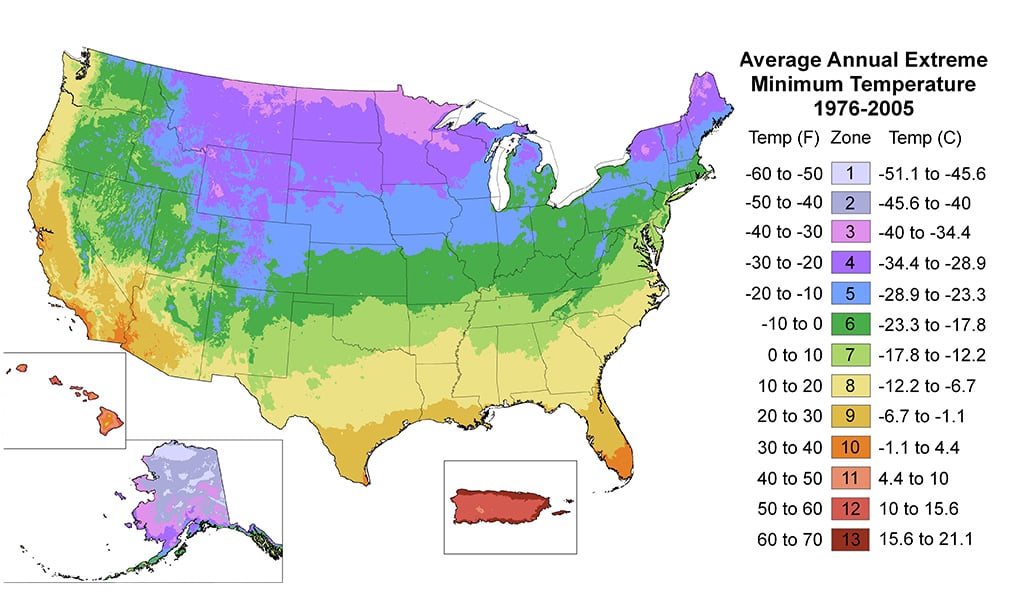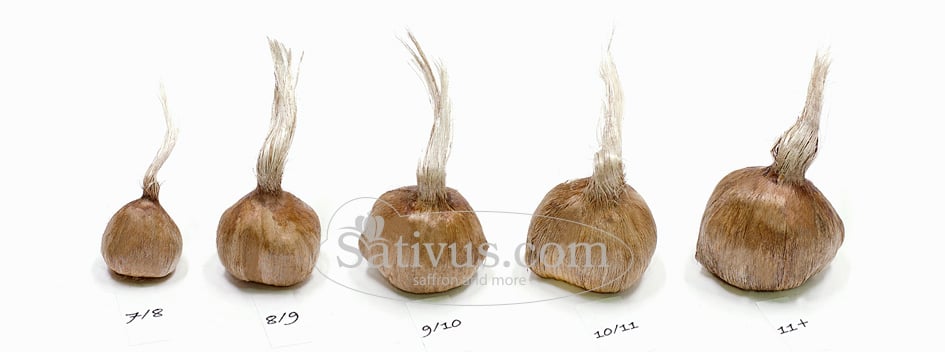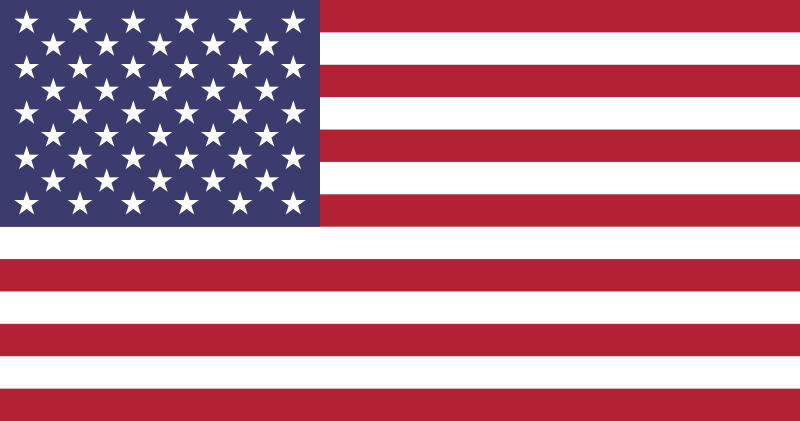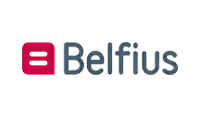USA customers
In many regions of the USA it is possible to grow saffron with Crocus sativus bulbs, but why is it not yet done on a large scale?
The United States is one of the world's largest importers and consumers of saffron, but with the exception of a few producers in the states of Vermont, Pennsylvania and Washington, the cultivation of saffron and the Crocus sativus is relatively unknown in the United States.
It is therefore very strange that saffron is not grown in more regions of the U.S., because this autumn-blooming bulbous species can be easily grown in the Department of Agriculture hardiness zones 6 through 8 and in a part of zone 9 in the Pacific West.
Let's grow saffron in the USA
The saffron crocus is not exceptionally difficult to grow and much information about it can be found on our Crocus sativus cultivation instructions web page. It is however important to keep in mind some basic necessities to make cultivation a success:
- Crocus sativus can be planted in many different soil types, but it grows best in a calcareous, well-drained sandy soil with a high humus content.
- To avoid phytosanitary pests and diseases, bulbs are best planted in fresh soil in which no other bulbous plants have ever been grown.
- During dry periods in autumn, before and during the flowering period, and especially in spring, the crop should be irrigated.
- The crop must be able to be protected from rodents such as rabbits, hares, mice and voles, which can cause great damage by eating the bulbs and/or leaves.

Of course, if you have specific questions about how to grow saffron in the U.S., you can always send us an email. Since we have over 30 years of experience growing Crocus sativus and saffron in many countries worldwide, we can often answer all your questions.
Saffron bulbs now available for customers in the U.S.
 Sativus.com provides high-quality Crocus sativus corms that you can use to establish your own saffron crop. The only problem that keeps customers from buying our Crocus sativus is the fact that the United States has specific import requirements for the import of plant material such as our Crocus sativus.
Sativus.com provides high-quality Crocus sativus corms that you can use to establish your own saffron crop. The only problem that keeps customers from buying our Crocus sativus is the fact that the United States has specific import requirements for the import of plant material such as our Crocus sativus.
The main requirement is that the batch of Crocus sativus bulbs shipped to the U.S. must be accompanied by a phytosanitary certificate from the country of origin, in this case the Netherlands, showing that the bulbs meet the requirements for entry into the United States. This certificate is obtained on the basis of a physical and optical quality control performed by the Dutch Flower Bulb Inspection Service after which the bulbs are inspected and the certificate is stamped according to the USDA flower bulb preclearance program. The inspection of the Crocus sativus and legalization of the certificate from the American side is performed at our company in the Netherlands by a USDA certified inspector before the bulbs are shipped.
Because there is a fee for the inspection and the certification which is 185 euro regardless of the size of the shipment, we are forced to add this cost the total order value. Unfortunately, it makes orders of a small quantity of Crocus sativus corms disproportionately expensive but if we send your order without the required papers, you can be sure that it will be confiscated by customs.
Can saffron bulbs be imported into the U.S. without restriction?
The answer to this question is: Yes, Crocus sativus bulbs may be imported into the U.S. without restriction as long as they meet the phytosanitary requirements for entry into the United States. An import permit is no longer required to allow the bulbs to be imported.
Under normal import procedures, Crocus sativus bulbs must be inspected at the first port of entry by CBP and APHIS personnel at the nearest Plant Inspection Station. However, since the croms are precleared in the Netherlands, this inspection and associated costs are avoided.
As shipping options, we use the services of FedEx or UPC for small purchases. With this option the crocus corms will be delivered to your home address but you have to take into account that you have to pay customs fees, VAT and import duties to the courier yourself. It is therefore wise to inquire in advance with the courier service in question how high these costs will be to limit unpleasant surprises.
Larger purchases of saffron bulbs can be sent by airfreight to the nearest international airport or, in case of very large purchases of about 100,000 pieces or more, by sea freight to the nearest seaport where the shipment will be delivered to the customs terminal where you, possibly with the help of a customs broker, will have to take care of the import of the bulbs yourself and arrange the transportation from the airport or seaport to your address or destination.
How can I order saffron crocuses at sativus.com?
Due to the additional fee and specific shipping costs for orders to be shipped to the US, it is unfortunately not possible to order online from us. If you are interested in purchasing Crocus sativus saffron corms from us we ask you kindly to fill out the form below so that we can send you an obligated free quote.
To somewhat reduce the cost of smaller orders of saffron crocuses, it is an idea to place 1 larger order together with several other people who want to buy them, so that together you can bear the extra cost making a smaller orders cheaper on balance. We would love to make it easier and cheaper for smaller customers to buy from us, but unfortunately we are bound by US import regulations from which we cannot deviate.
Thank you very much for your interest in our saffron bulbs, the Crocus sativus!
If you are interested in receiving an obligation free quote, simply fill in and submit the Quote Request Form below. We will contact you back promptly.
We trust that you will find our price quotation satisfactory and look forward to working with you. Please contact us should you have any questions at all.
If you have not received a response from us within two days, please check your spam / junk folder of your email account.






















 BIO bulbs
BIO bulbs
 NON-BIO bulbs
NON-BIO bulbs
 Wholesale
Wholesale
 Miscellaneous flower bulbs
Miscellaneous flower bulbs
